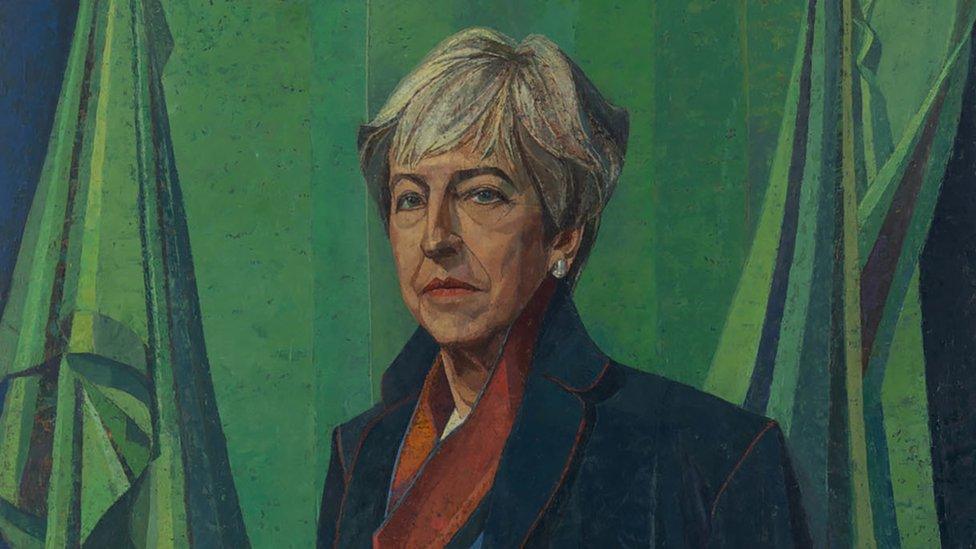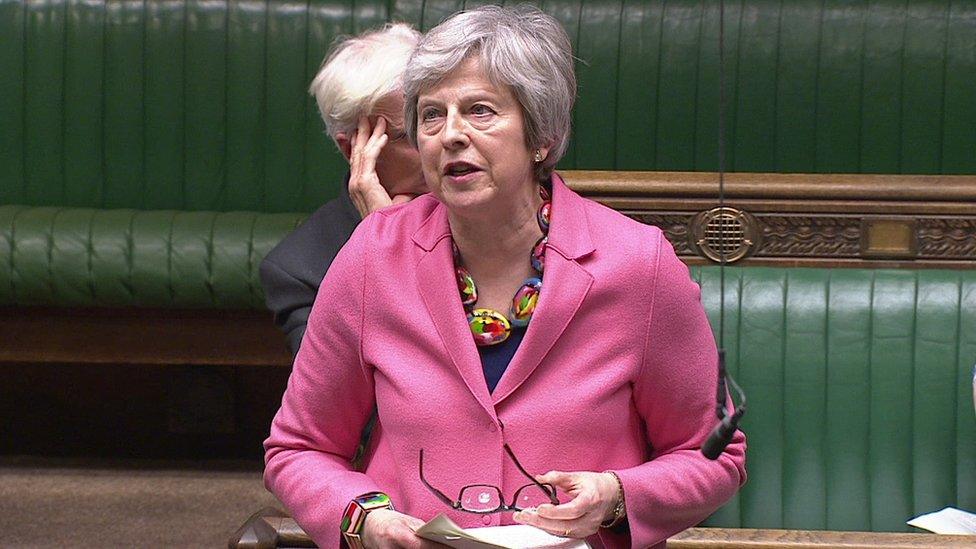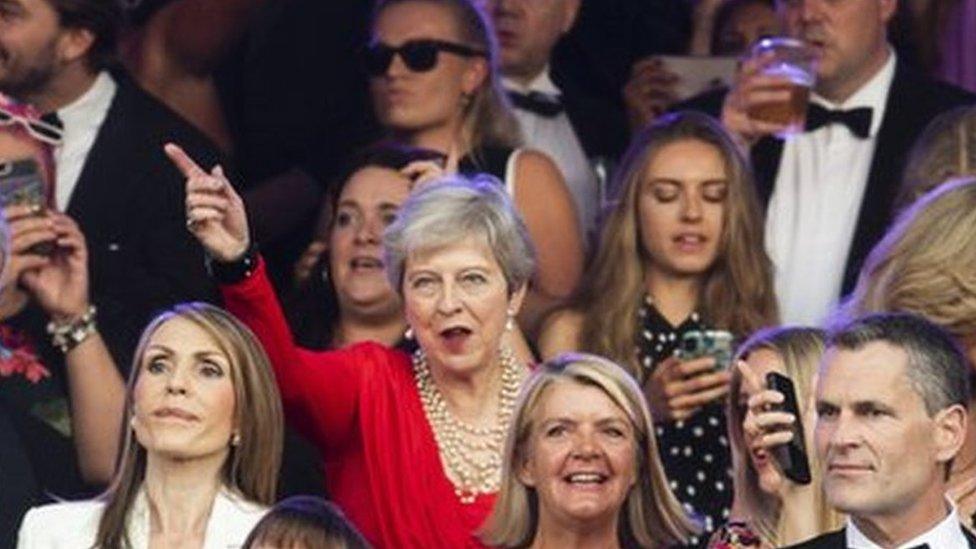Theresa May: My Brexit deal would have been better for UK
- Published
- comments
Theresa May regrets saying 'nothing has changed'
Former Prime Minister Theresa May has told the BBC the UK would have been better off if MPs had backed her deal to leave the European Union.
Mrs May said her plan was thwarted by "hardline" Brexit-supporting MPs and those who wanted to remain in the EU.
The Conservative MP became prime minister in 2016 after the UK voted to leave the EU in a referendum.
But she was forced to quit and replaced by Boris Johnson in 2019 after her deal was repeatedly rejected by MPs.
In a wide-ranging interview with Nick Robinson's Political Thinking podcast, Mrs May reflected on her three turbulent years as prime minister ahead of the release of her memoir, the Abuse of Power, later this year.
When Mrs May entered office, the country had narrowly voted to leave the EU by 52% to 48%.
To implement that result, Mrs May's government spent years negotiating a withdrawal agreement, which set out the terms on which the UK would leave the EU.
Mrs May told Political Thinking she "wanted to deliver a Brexit that recognised the concerns of the 48%".
"And that was the deal I believe I negotiated."
Under sustained pressure from Tory MPs, Mrs May struggled to get parliamentary support for the legislation needed to seal her deal.
MPs rejected the withdrawal agreement negotiated with the EU three times in votes in Parliament, and attempts to find a formal compromise with Labour also failed.
But Mrs May insisted: "It wouldn't have given either side 100% of what they wanted, but it would have given the country a better overall deal."
In the end, MPs backed a deal negotiated by Mrs May's successor, Boris Johnson, who won a landslide general election in 2019 by promising to "get Brexit done".
Mrs May said it was a "fallacy" to describe her plan as a "hard" Brexit, because she was trying to keep trading advantages the UK enjoyed in the EU.
"I was trying to get people beyond that sense of only looking at what the past had been like," Mrs May said.
Theresa May claims that people who live in social housing were viewed by some as "second class citizens"
Mrs May has made few public appearances outside Parliament since her resignation in 2019.
With a book out soon, she has opened up and spoke about some of the events that shaped her premiership, from the deadly fire at Grenfell Tower, to her relationship with former US President Donald Trump.
One of the defining images of her time in office was her tearful resignation statement outside Downing Street.
Speaking to Nick Robinson, Mrs May said the media framed her as a "typically silly woman".
"It was that sense of weakness," Mrs May said.
"It's one of the challenges, sadly, for women in public life. If a man shows emotion, it's wonderful that he's showing that side of himself. If a woman shows emotion, it's weakness."
She was careful throughout the interview not to criticise the current Prime Minister, Rishi Sunak.
When asked about Mr Sunak's pragmatic approach to curbing carbon emissions to net zero by 2050, Mrs May said: "I put it in a slightly different way but it's the same theme."
She said: "If we shake our fingers at people and say you can never fly again, you can never drive a car again, you can never eat meat again, we're never going to get where we need to be because people are just going to say, no, hang on a minute, no, that's not me."
Mrs May - whose government signed the net zero target into law in 2019 - said "we have to take people along with us".
She said: "As Rishi says, he wants it to be about jobs. He wants it to be about economic growth. I think it really can be. And I want to see the government coming full throttle behind that."
You can hear the full interview with Theresa May on Political Thinking with Nick Robinson, available on BBC Sounds. It is on BBC Radio 4 on Saturday at 5:30pm.
Related topics
- Published5 September 2023

- Published13 March 2023

- Published8 July 2022
